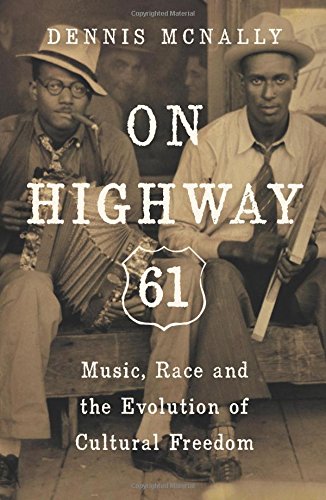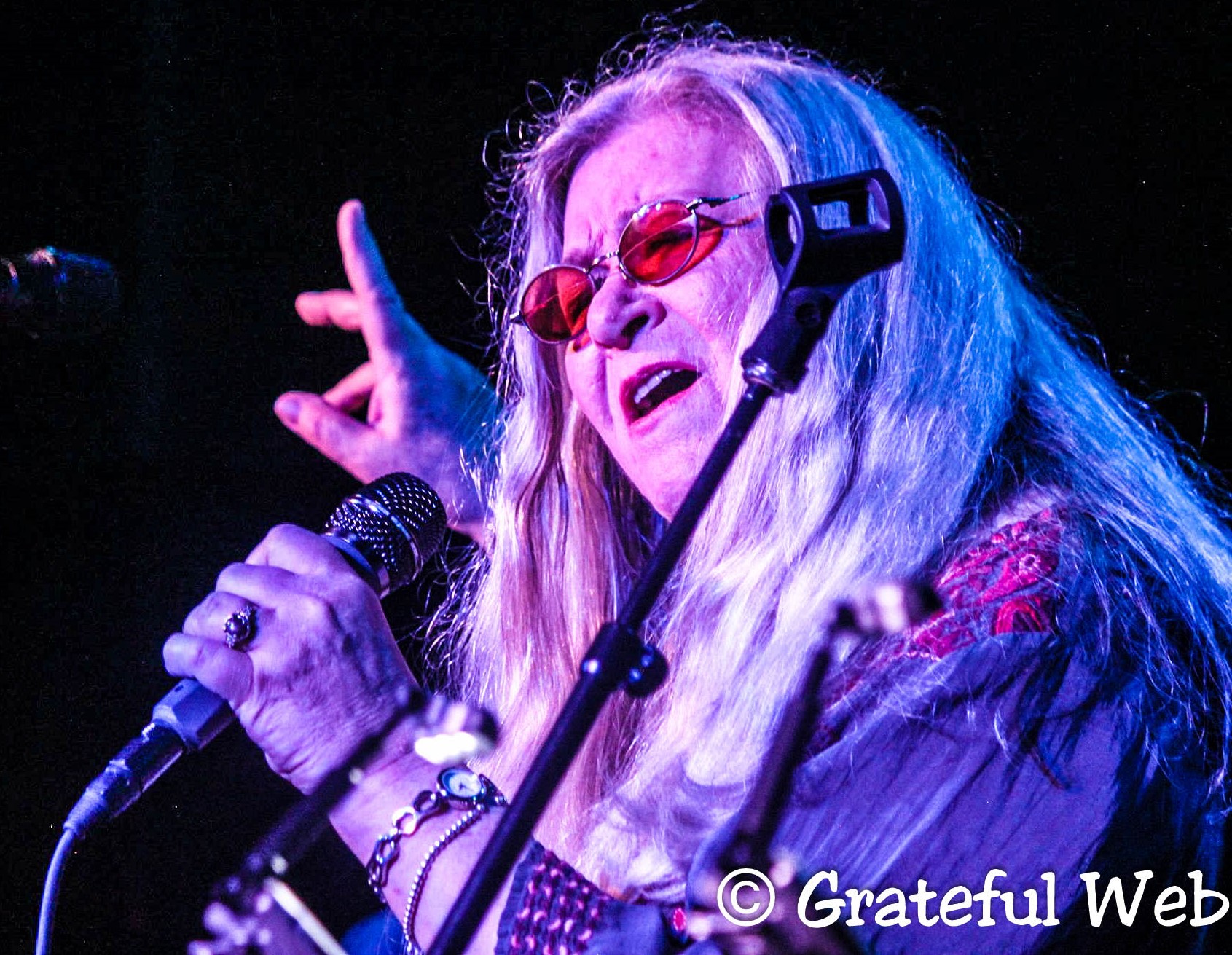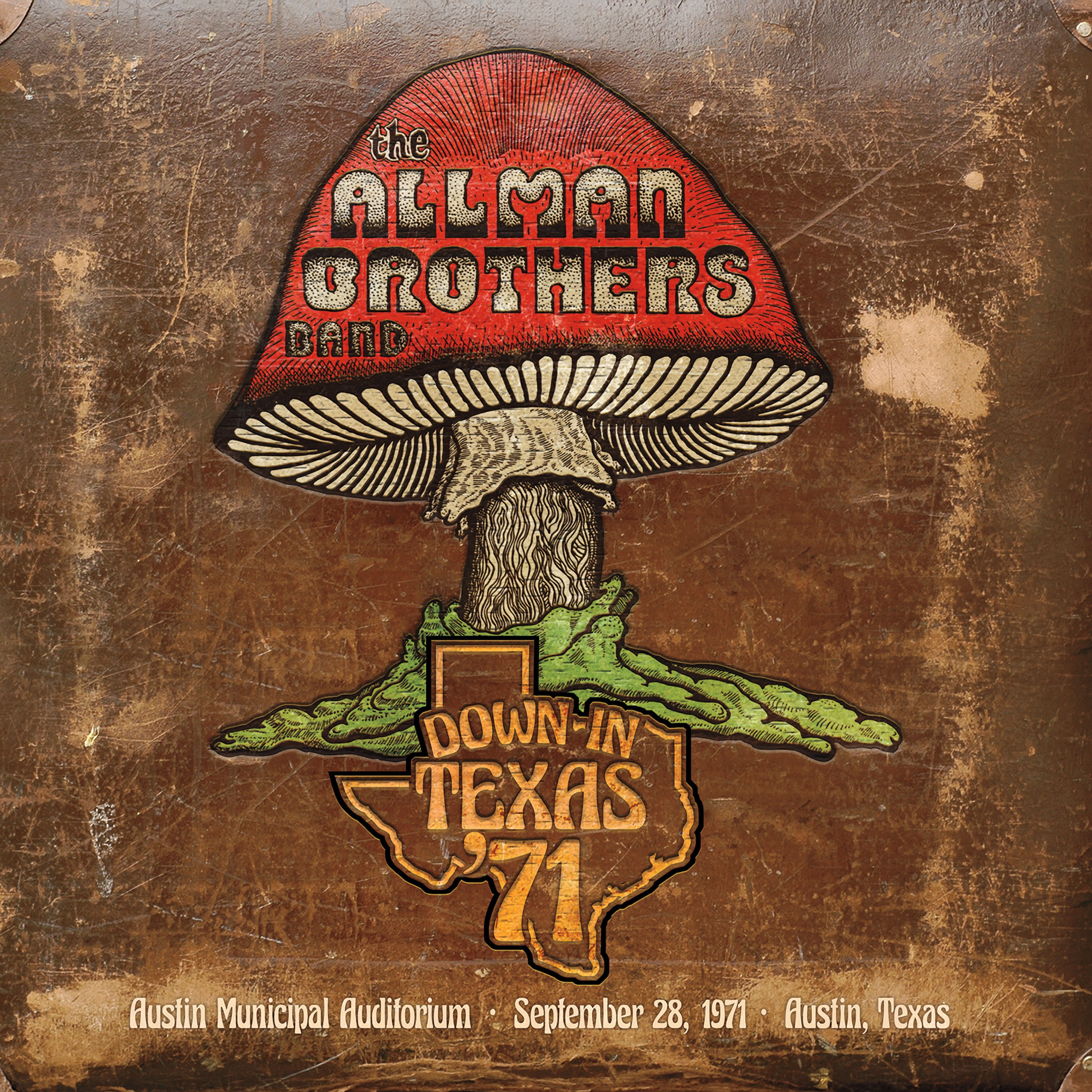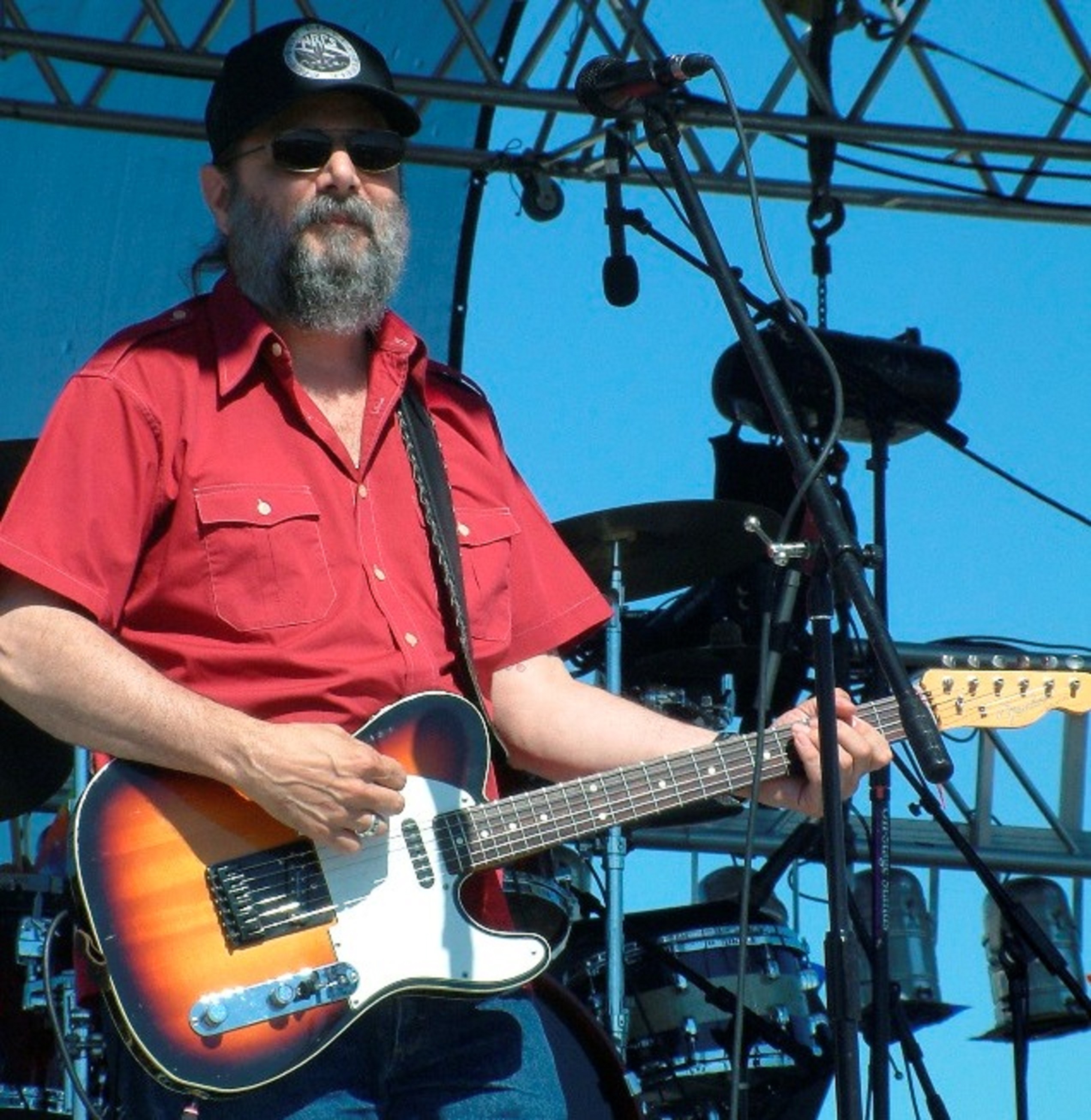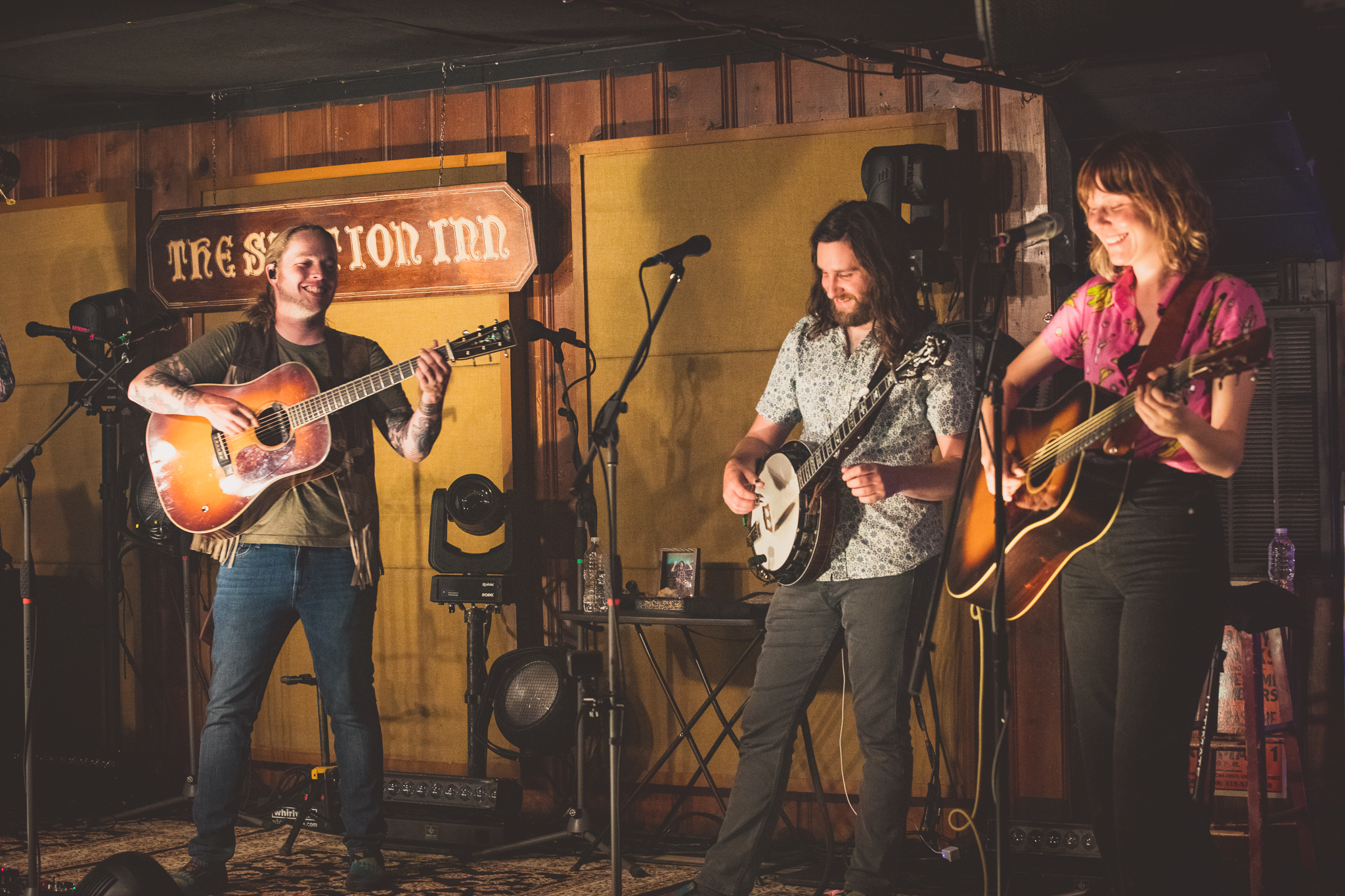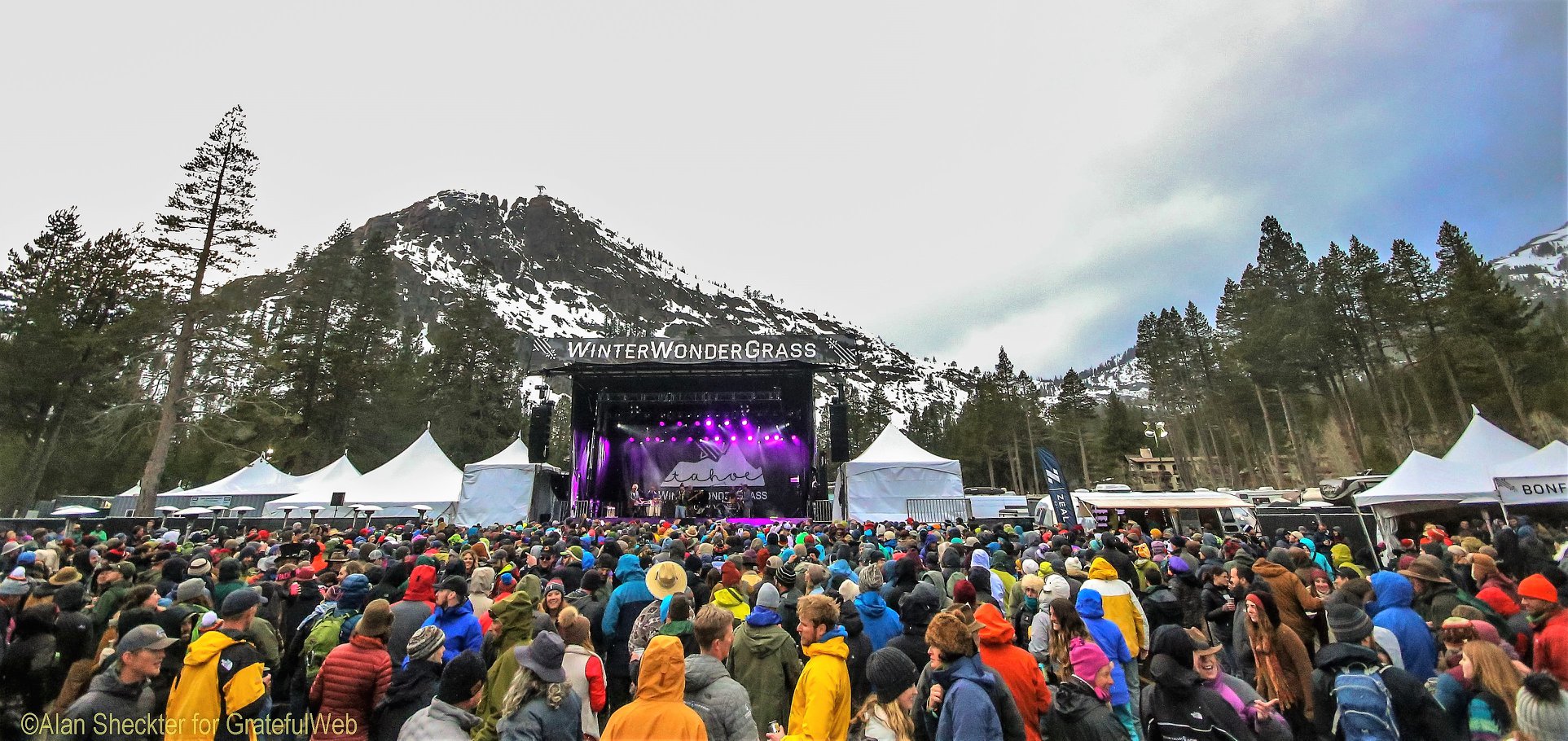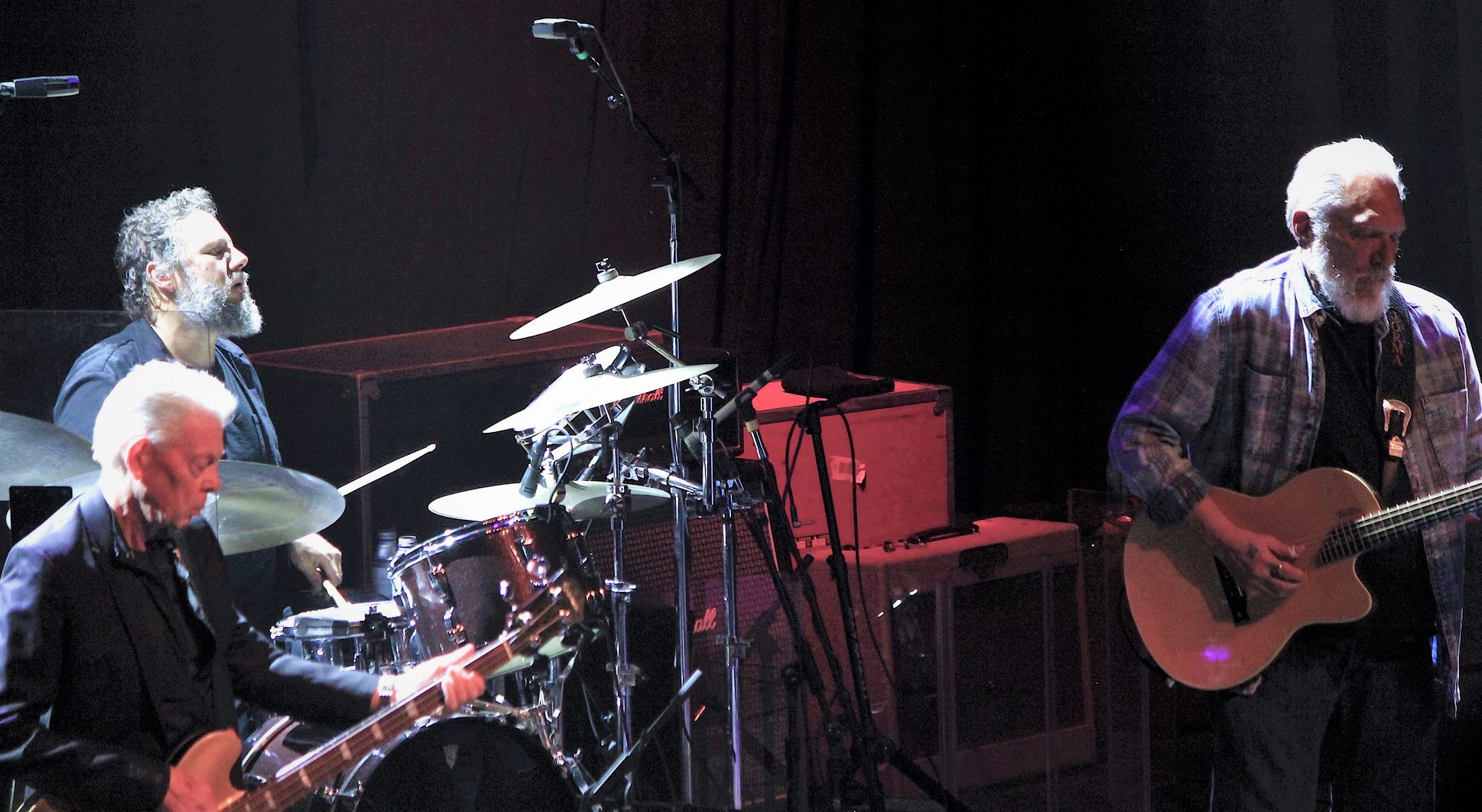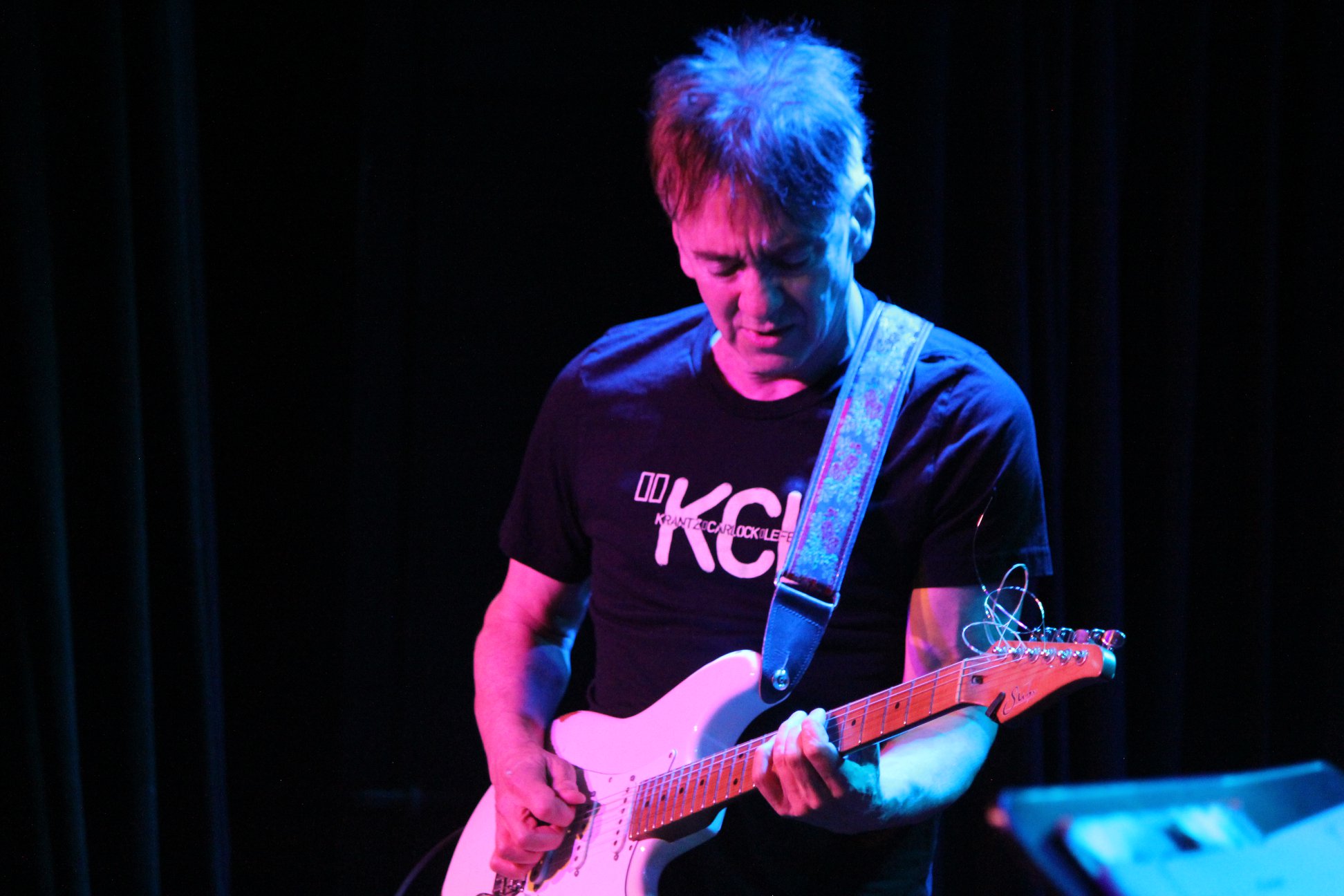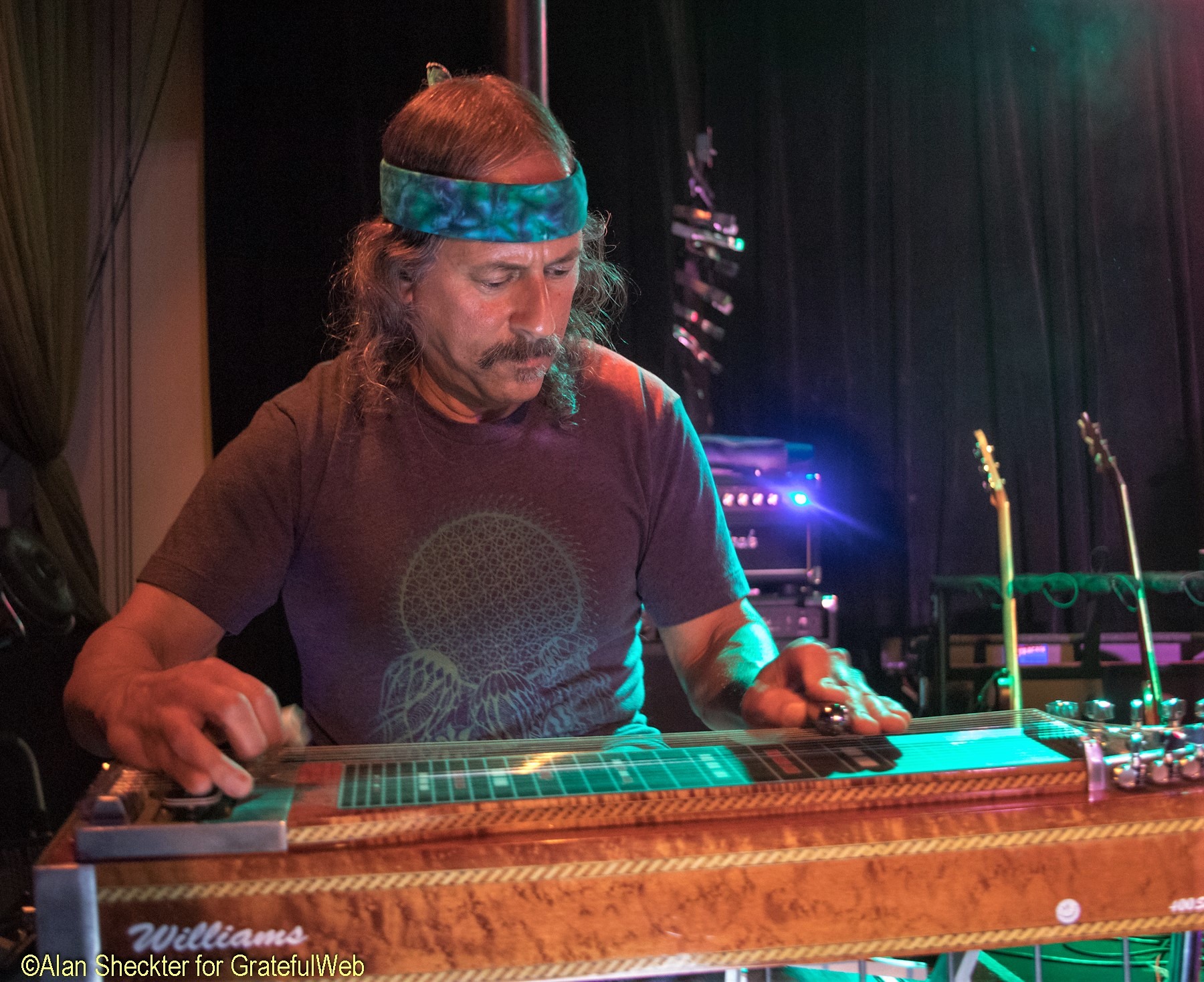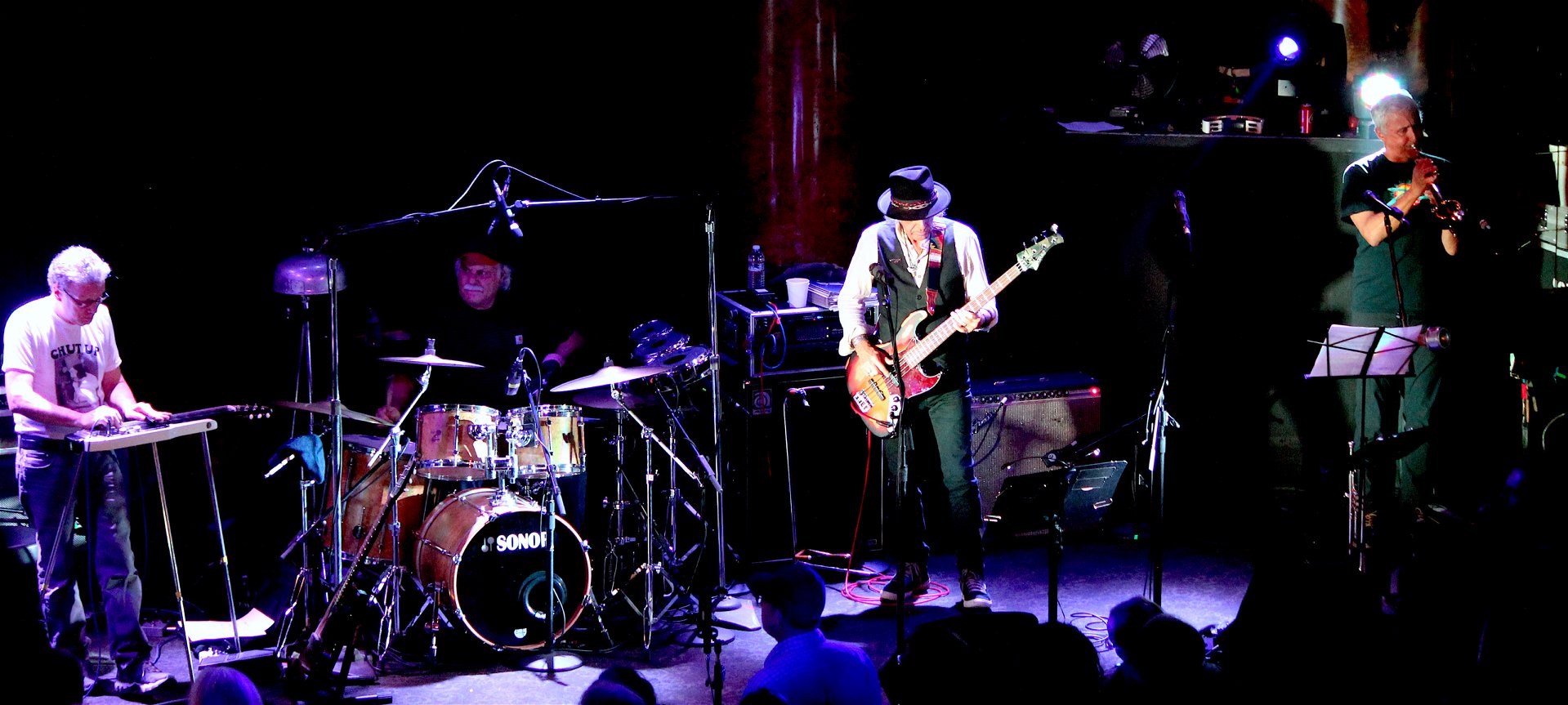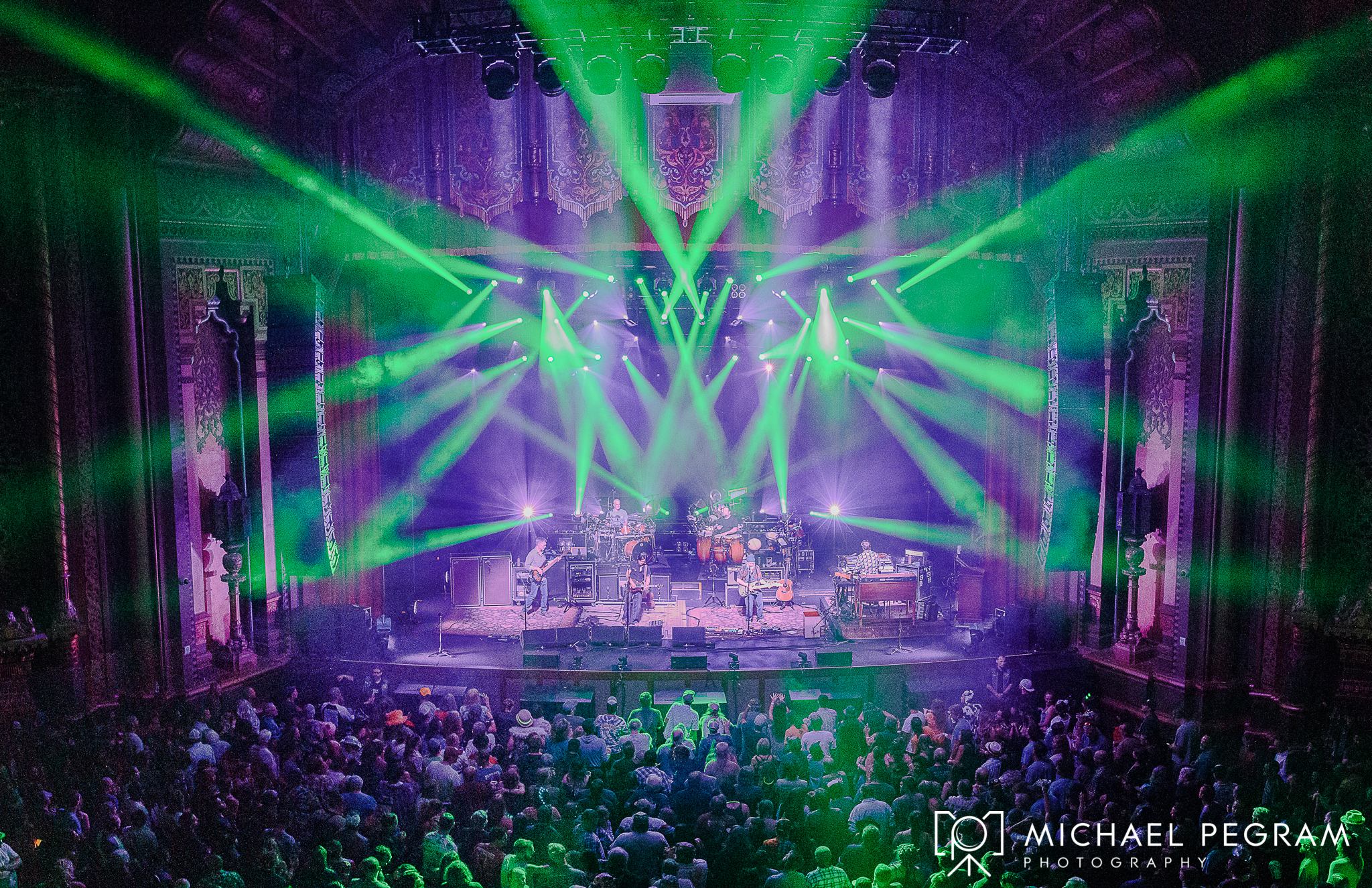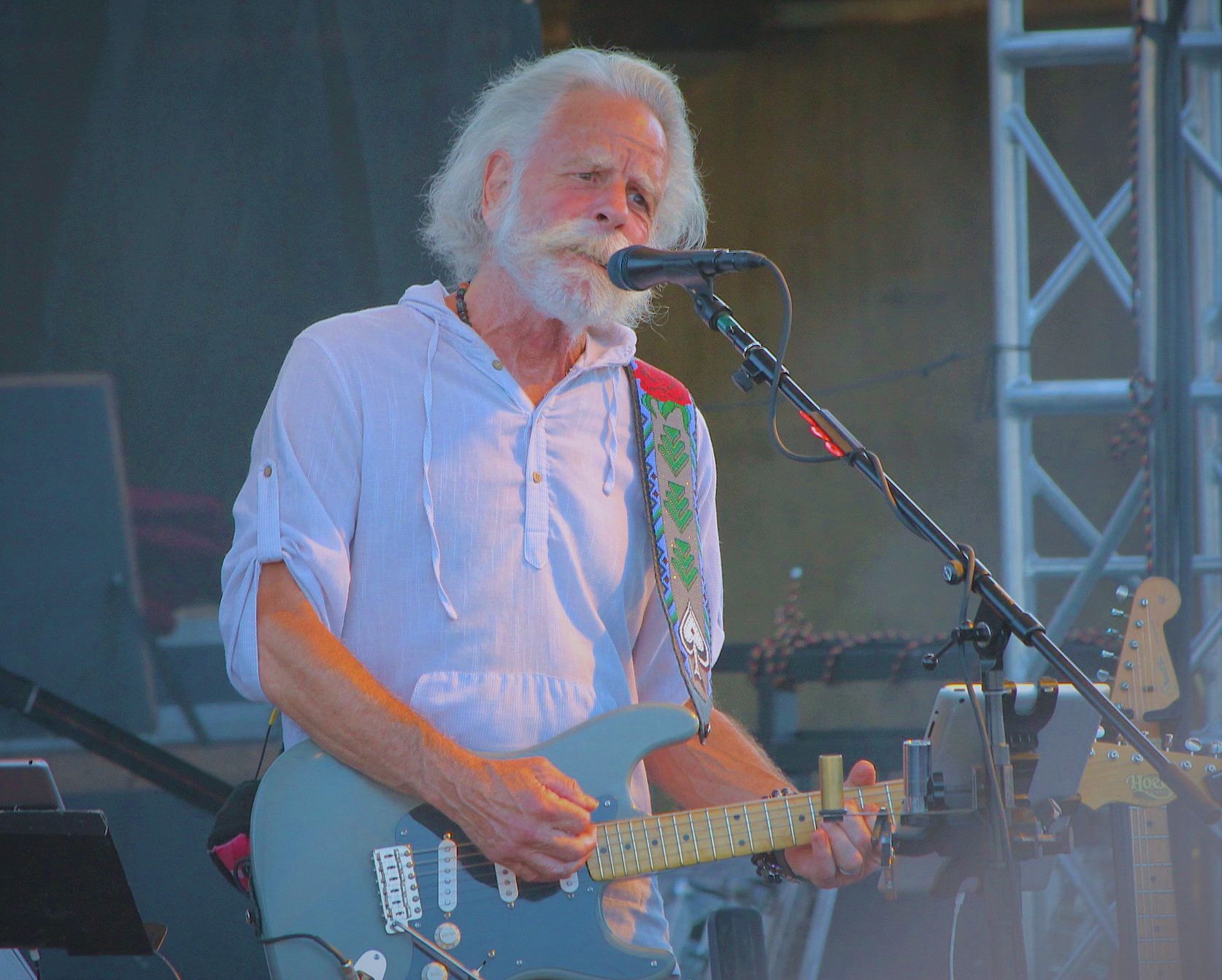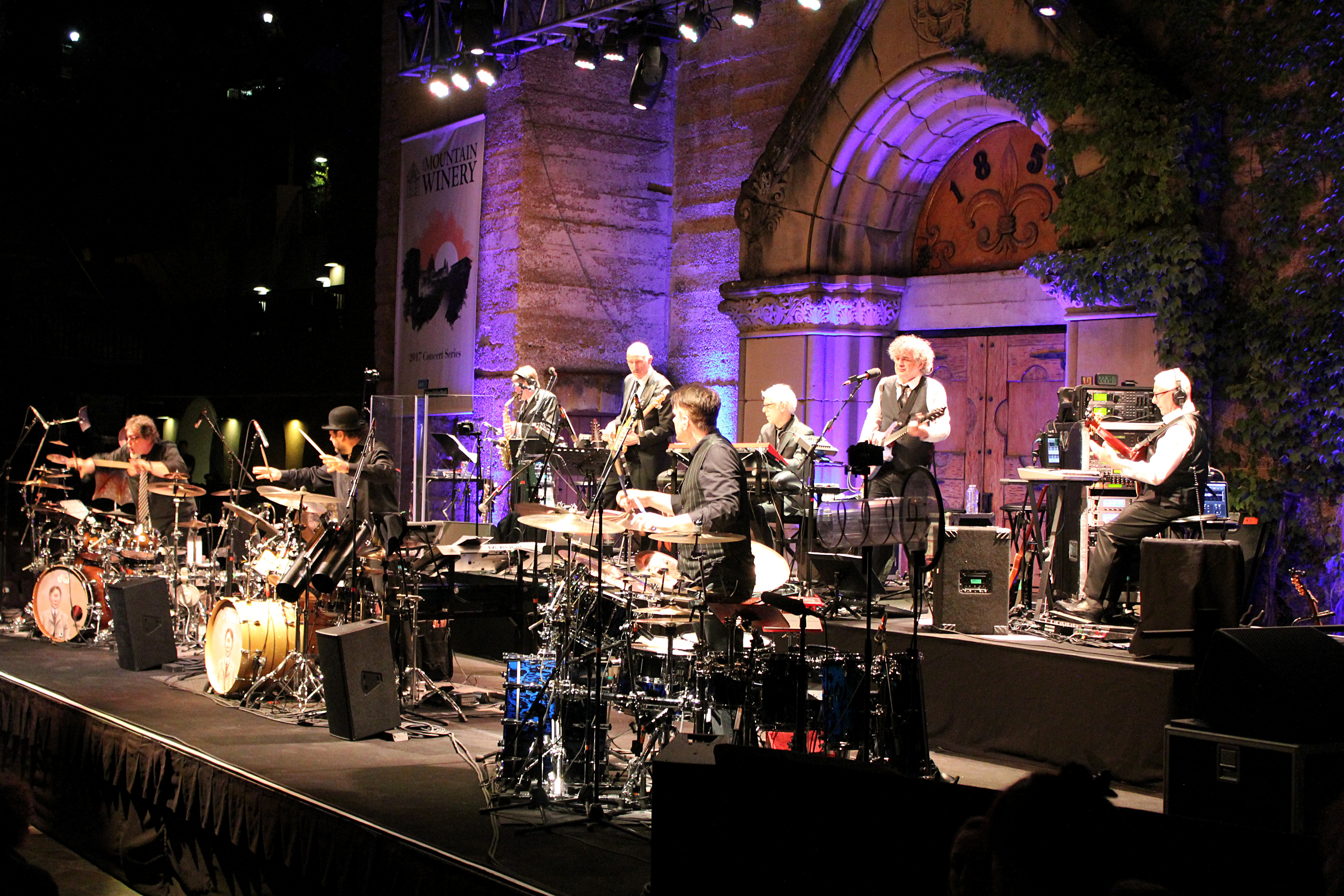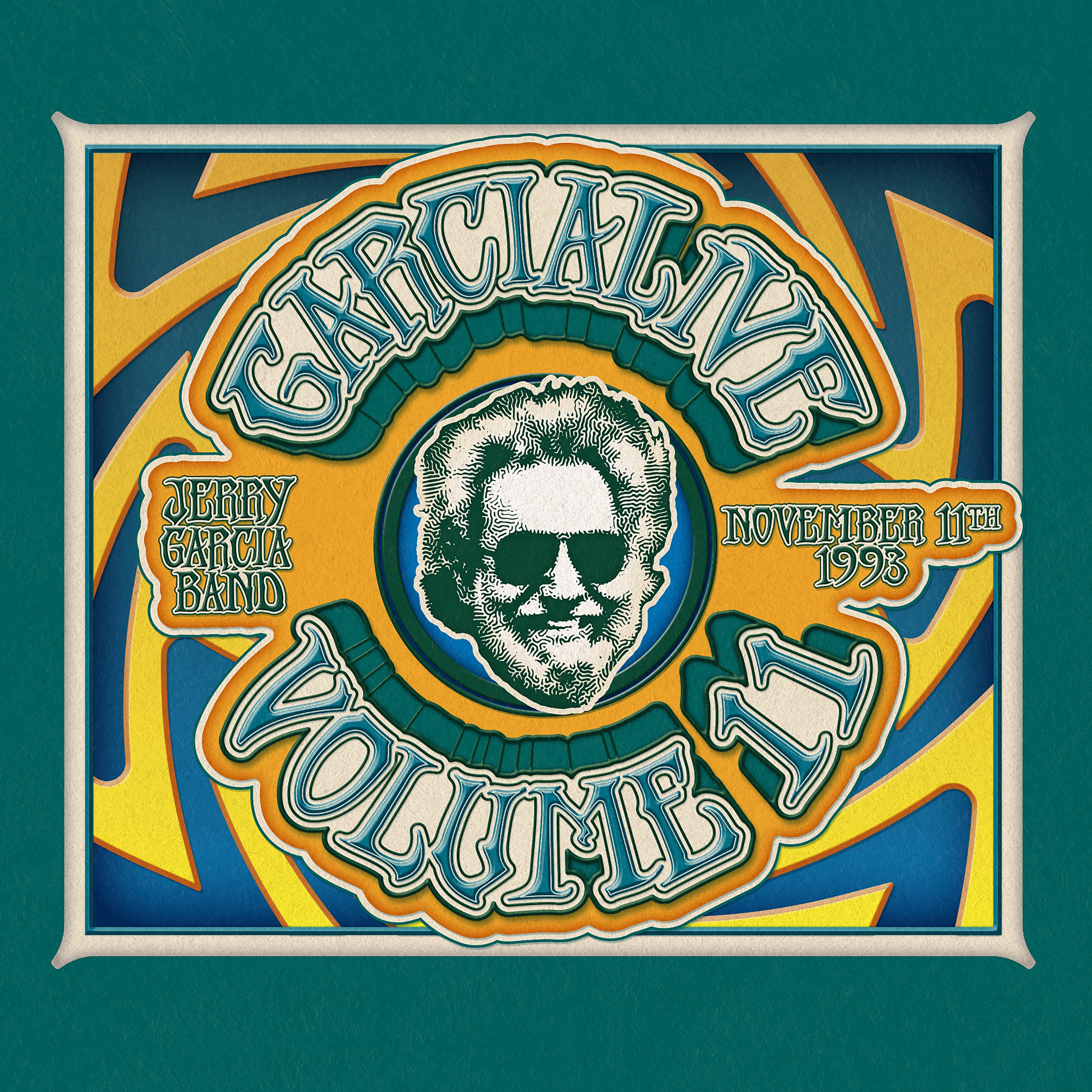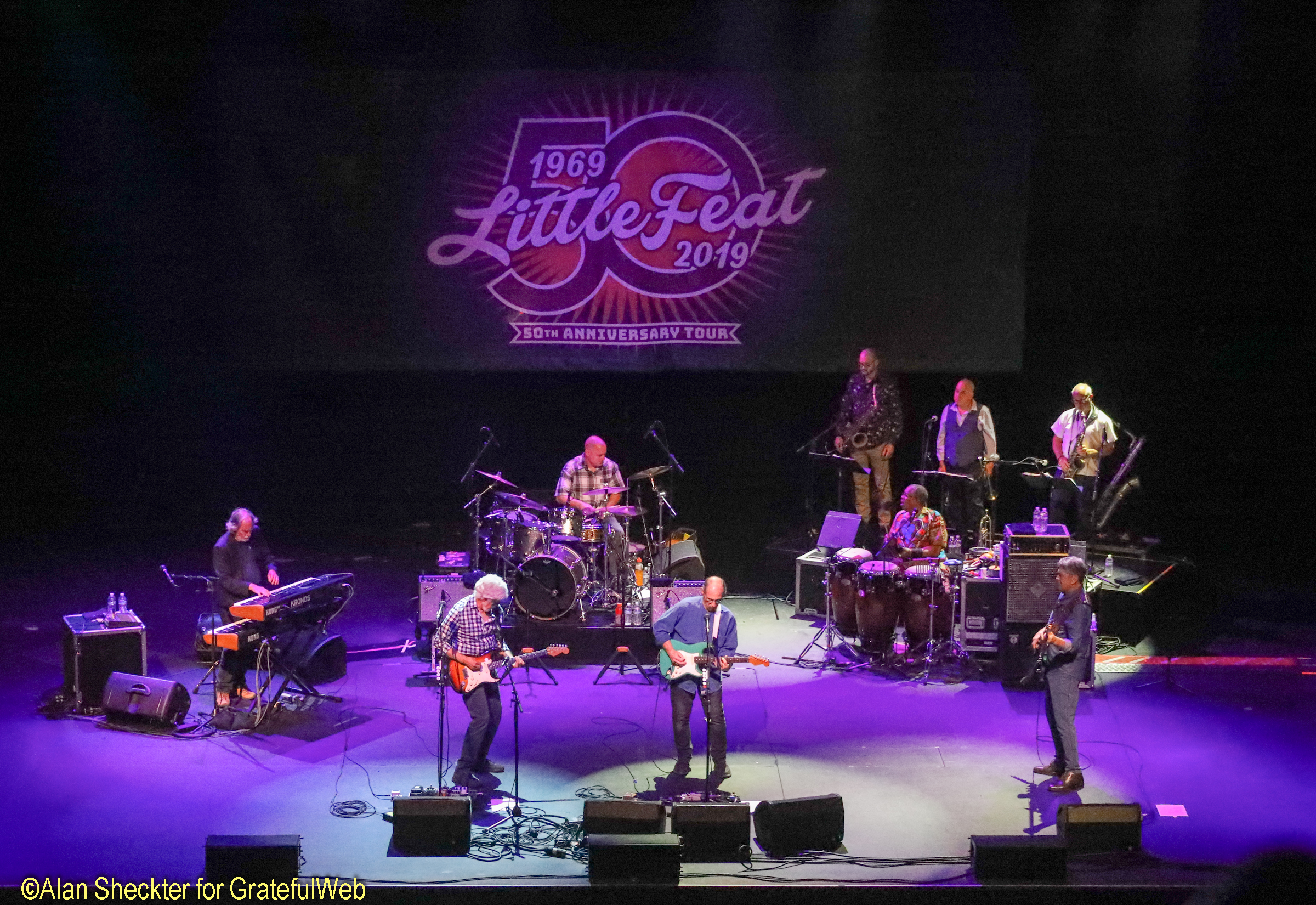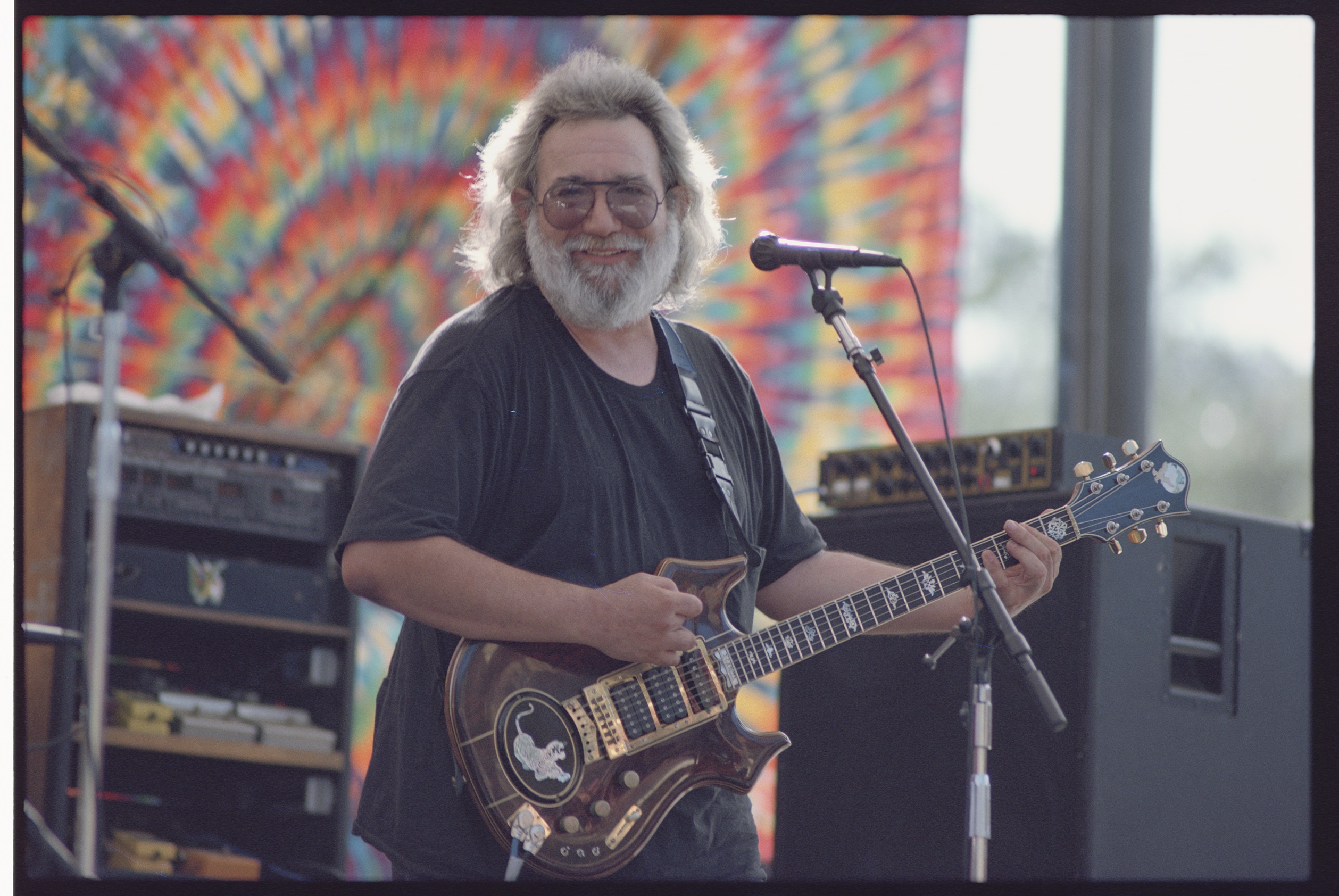Grateful Web recently got the chance to chat with veteran music business multi-tasker and author Dennis McNally. His third book, On Highway 61: Music, Race and the Evolution of Cultural Freedom explores the significance of African-American music in the evolution of cultural freedom by examining the historical context and deeper roots of mainstream American’s cultural and musical progression. McNally investigates the context and history of popular music’s black roots before arriving at the early career and rise to fame of Bob Dylan. Music and history buffs alike will deeply appreciate this fresh take on the rise of popular music in America.
GW: This is Dylan Muhlberg of Grateful Web. I am honored to have with me author, historian, and veteran publicist Dennis McNally. McNally’s 1978 biography of Jack Kerouac & the Beat Generation, Desolate Angel caught the attention of Jerry Garcia who brought Dennis into the Grateful Dead organization. He was more than their publicist and biographer, but a valued insider who formed intimate friendships’ with the band particularly Garcia. His biography of the Dead, A Long Strange Trip, published in 2002, is undoubtedly the most compressive piece of literature on one’s of rocks most beloved groups. His first book in twelve years comes out October 13th from Counterpoint Press, On Highway 61: Music, Race and the Evolution of Cultural Freedom. It’s great to have you with us Dennis.
DM: Thank you. It’s a pleasure.
GW: On Highway 61 brings needed context to the contributions of African American music and its connection to the roots of American culture as a whole. It’s a culmination of so many singular seeming aspects of our history that are truly interrelated. How many years of research did it take to compile the book?
DM: I put in about eleven or twelve years. I’m slow, [laughs] what can I say. This book was a little different also, compared to my first two books, both of the first two had a ready-made plot and clear divisions. Like, Kerouac was born and died.
This project started as a completely open ended thing. I asked the question and I really didn’t know the answer. It took a long time. I was reading for two or three years until I had a vague idea of the answers. The shape, as you say, how it turned out. The question is: Why did the Sixties happen? And not the immediate stuff that was obvious, like the LSD or birth control pills or the war in Vietnam. What went further back? And eventually I decided it was this ongoing relationship between, what started off as just a very few white people and over the course of the late nineteenth and in particular twentieth century, became much of the white population playing attention to black culture. On the political side it was simply; if they’re not free, then white people aren’t free either. We’re in this together. It’s a requirement.
So that’s why it took so long, at least in part. It took me a long time to know what I was researching. I was just poking my nose into all kinds of questions. And my first draft was 150 pages on Henry David Thoreau. I had joked that this book was a chance to go back to graduate school as long as I was running the program. I read up deeply on Therou, and ended up sensibly by my editor to cut it, and I was able to cut it down to about thirty-five pages. It took a while for me to understand what the actual subject was and what the answers were. You can’t answer such a complex question with a simple answer.
GW: Well it really boils down to cultural freedom. What differentiates cultural freedom from freedom in general?
DM: In America, at least since the era of Alexander Hamilton, which was pretty much the start of the nineteenth century, a large proportion of Americans thought and still think that freedom is really the freedom to make as much money as possible. In fact that power limits every other kind of freedom. It just does not bother them. We have a political reality with the struggles in this country right now. There’s this extreme right wing Tea Party, which seems to be a front for the richest one percent in America. Trickle down theory tax structures and other fundamentals that won’t limit their monetary gain. The issues that the Tea Party runs on are social issues, all of which stem from the sixties. The right wing in America, at least since the Reagan era have run on an anti-sixties platform.
This is sort of why I wanted to write this book. Though it ends in 1965 and looks back, its extremely contemporary. It’s the roots of exactly what’s going on now.
GW: One of the most rewarding qualities of reading your work is that you write about history as a novelist might. You color the past for your contemporary readers in a way that other historians struggle with. How does illuminating the drama of the factual past aid you as a writer?

DM: One of the things Buddhists say is that there really isn’t a past or a future, there’s just now. The point is that now has all this inherent drama. One of the nicest compliments I ever got was when I turned in my doctoral dissertation and a friend of mine who was a filmmaker said, “Wow, you write very cinematically!” The point is that it’s telling a story. And you tell a story with detail, with information. Writing history is not the same as writing a novel. Hopefully in history you’re constrained by the facts. That doesn’t mean that you can’t write in a way that appeals to people senses.
If [On Highway 61] is an incomplete story, you just can’t cover everything in history. But it’s a story. There’s a contemporary academic style of writing history in which largely there’s this theoretical matrix and analysis that’s laid on top of the story. A lot of it’s very political and a lot of it is very left wing. But I really do try to tie a theoretical matrix to the story that lets the story tell itself. I would say that most academic critics that ready the book would call me old-fashioned. I think they’re wrong [Laughs].
I cite a very good book called When We Were Good, which is a story of folk music and there’s a criticism of the Fiske Jubilee Singers as being entrapped by middle-class morality in a stereotype of dutiful suffering. The fact is that what your doing is analyzing behavior in the 1870s by the standards of 2014, somehow implicitly he’s sort of saying, they should be revolutionary. That’s not realistic or historical. It implies values that culture doesn’t evolve over time. The book is hopefully an attempt to tell the story in and of its time.
GW: An interesting intersection in your book comes around the turn of the 20th century with musicologist and folklorist John Lomax. He’s generally sited as an invaluable archivist of the folk canon; your book reveals controversy in shady dealings with musicians and perhaps even the accuracy of his archiving. In lieu of this, is Lomax’s legacy in need of reexamination?
DM: Yes. It’s being reevaluated. The stuff that troubles me was that there was a book on the Georgia prison system of the 1930s, it was horrific. There was an expose of it and this was at the time when Lomax was visiting prisons and listening for songs. He was self-serving and spoke openly against what he witnessed after the expose.
His first book was about cowboy songs, and one of them that he identified as a “folk song” was “Home On The Range.” Eventually the guy who held the copy write sued him. It was some doctor from Kansas who had sat down and wrote home on the range. I’m not criticizing Lomax for not knowing that. It’s embarrassing. Having experienced that he should have been extremely careful in the future about identifiying songs as folk. For instance, he ended up working and in some ways exploiting Huddie “Lead Belly” Ledbetter, and he identified “Good Night Irene” as a folk song. When in fact, it was a minstrel song. Lead Belly may have learned it from his uncle. But his uncle knew it as a common traditional. It wasn’t part of folk. Lomax could stand a little revision. He did some important work, but he also led on that Ledbelly got out of prison because of his persuasion, which was absolutely not true.
GW: The orchestral jazz of the 1920s became the choice dance music for white youths of the time. In certain ways it represents the first overcoming of the racial segregation barrier in American culture. Do you think that generation understood their significance in embracing black music?
DM: The answer is no. A tiny fraction of them did. The music group the Austin High Gang did. A bunch of young white musicians who grew up in the twenties in Chicago, which was the great black city of America. Musicians that we know as legends sat in with Louis Armstrong or Bessie Smith in clubs. And they listened to this music and knew it was great. Black was not a handicap to them. They recognized that black musicians were the source of this jazz. And they wanted to play it themselves and they did. And the ended up doing that and dominating the industry at which point it was called swing music.
But you have to understand most of the big swing bands were all white. The majority. Jack Kerouac is an example. The majority of white youth listened to white bands. Maybe they vaguely knew that jazz started with black people. Unless they collected old music they might not have known that so much. You can see in Kerouac’s biography in Lowell, Massachusetts growing up he was a swing fan. I don’t know how much he knew. We do know that in 1939 he graduated from high school and went for a year to Horace Mann Prep School in New York and they went on to play football at Colombia. He ran into a guy in the Bronx, and he started taking him around Harlem to experience black life, including music. He see’s the Count Basie Orchestra for the first time and then realizes “Well That’s Interesting. This music is considerably improvisational.” To him, it became better than the static white swing groups of the time.
That happened a lot. By the 50’s that lesson was completely clear, not only the influences but also the fact that the players were mostly black musicians because they happened to be the best. But in the thirties in particular in swing, it was a slow transition. It took some education and some learning. It really took until the forties for the majority of the white youth that were listening to realize and appreciate the origins of jazz. But even before that they just knew it was the music they loved. What in the 1920s was seem as morally dubious and subversive was the national music of the 1930s.
GW: Many historians who have focused on the development of blues music prefer to mythicize the ambiguities involving Robert Johnson. Your account brings balance to the legend. What does Johnson’s legacy in music represent to you?
DM: What it represents to me is four or five of the best songs ever written. I think “Come On In My Kitchen,” “Hellhound On My Trail,” “Love In Vein,” a couple others are simply masterpiece songs. In 1961 “King of the Delta Blues” is released. It’s about half of the recorded Robert Johnson catalogue. He put out a few in the 30s. They went nowhere generally. His two recording session had 29 songs and didn’t go very far with the black audience. Recent revisionist historians think that he just wasn’t very important. He’s only important now because a bunch of white people fell in love with him in the 60s. Which is true. The British absolutely, and of course Bob Dylan. A whole lot of others were hearing him for the first time and thinking it was a distinctive voice. Which I think is sensible.
Many critics were talking about his work, like Griel Marcus. They were so enthusiastic that he was an easy target to make critical chops of by slamming him. I once had a wonderful conversation with Chris Strachwitz, president of Arhoolie Records and one of the important musicologists of the last fifty years. Field recordings, the blues, and all kinds of different music. He’s the man that brought Cajun music to a wider American audience. At some point I said something to him about Robert Johnson. And he said “you Americans and your Robert Johnson.” And I said “Wait a minute, you’re telling me your rather listen to Leroy Carr than Robert Johnson?” Taste is everything.
There’s a whole lot of fog around Robert Johnson because of the mysteries. And there’s the whole thing about did he sell his soul to the devil? Which was just a passing remark. Got beaten out of any prospective over the years. The myth has some intrinsic appeal to people, this idea that people would sell their soul for immortality or the ability to play great music. With Robert Johnson it was made as a joke. He goes away, a mediocre guitarist and best, and comes back exploding and fantastic. People make this silly remark. Gee, you think maybe he just worked his butt off for a year? There’s no need for supernatural explanations. In African folklore, a crossroads has spiritual and mythic significance. And yes Johnson wrote a song called “Crossroads.” But he’s talking about literally being afraid at the crossroads because he’s hitchhiking. A black man hitchhiking in that era in Mississippi. It wasn’t supernatural. He was worried about some cracker coming along and killing him. And he calls out to God, “Spare poor Bob if you please!”
GW: Your book is structured into three parts. Race and Freedom Principal in nineteenth century America, African American Music and the White Response, and the third surrounding the origins of Bob Dylan. What makes Bob Dylan the arrival point of a book focused on African American Cultural Freedom and History?
DM: Well, most people think of Bob Dylan as an heir of Woody Guthrie and folk music. But the fact is if you study his sources and his origins a significant part of his entire work is that he is the summing up of black and white sources both. Mainly rock ‘n’ roll, bringing it all back home. It was his high school music, when he was imitating Little Richard. That and he’s profoundly connected to the Civil Right Movement of the 1960s, the political side of the freedom principal. So to me that sums everything up. And on top of that when I talk about the origins of relatively recent black music. The blues, ragtime, and jazz, which originated around the turn of the 20th century, they all came into existence within fifty to a hundred miles of the Mississippi River.
One of the big moments to me when I was doing this research was that he was on the river too. It’s a long ways away at the other end, but he’s connected. What you find out when you study him is that one of the really important things that happened musically to him in high school was he started listening to a radio show from Little Rock, Arkansas. Back in the day you could get radio stations after dark from way far away. Dylan, all the way near the Canadian boarder, is listening to a show called “No Name Jive” The deejay was a white guy called Frank Gatemont Paige, who was playing Muddy Watters, Jimmy Reed, Chuck Berry, Little Richard, and the very best top 40 black music in 1957. This was not a normal experience for a kid living in Hibbing, Minnesota. I just think he’s the heir to this whole story. He is the perfect way to realize the path of this story. Of course he’s the one that wrote “Highway 61 Revisited”, which kind of connected everything up for me.
GW: It seems so ironic to me that Dylan was chastised from the folk community, in the pinnacle of his career, as a traitor for producing rock music when his earliest musical connectivity was with rock. In reality, the core identity of Dylan’s early sixties material is most immediately as protest music. Why was Dylan’s protest music so closely identified with folk? Was it any less powerful in the rock idiom?
DM: It was a lot subtler in the rock idiom because by the time he was in the rock idiom he was writing more personal songs, which were just as much about freedom as the so-called protest songs. Something like “Chimes of Freedom,” or “Desolation Row,” or “Gates of Eden,” the whole central issue of all of those songs is personal freedom. It’s not as easy to digest as “Blowing in the Wind,” which was hailed as an anthem. Folk music and protest had been interconnected as far back as Pete Seeger, Woody Guthrie and Lead Belly I might add. All three played together, at times lived together, and explicitly wanted folk music to have a populist political vent. And Dylan lived through that.
At Newport in 1965, one year after the Beatles, I suspect that for the thought that was going through the mind of many critics who were dumping on Dylan for picking up an electric instrument was simply that he was a commercial sellout. This is the new fad. He’s going to drop our virtuous and pure folk music and go be a rock star. I would argue he made that move out of artistic need. If you listen to “Bringing It All Back Home,” it starts acoustic and ends up electric. He was trying songs in both modes. He did “Love Minus Zero No Limit” acoustic, then built in other instruments because it made more sense. He was experimenting constantly as a musician. I think he made those changes for aesthetic reasons and as a comfort thing. As you said, he started out as a rocker. It was very easy to see why you would turn to folk in the early sixties because frankly, rock was boring. Most of the stars of the fifties, Little Richard had retired and Jerry Lee Lewis had gotten into a huge scandal over marring his fourteen year old cousin, Elvis goes to the army, Chuck Berry get arrested. Same with Garcia. Jerry had also been in a rock band in 1957, playing electric guitar, but in 1961 he gets intrigued with acoustic music and from there banjo, and goes through the same pattern as Dylan.
GW: Dylan is rightly chronicled as a sarcastically reflexive narcissist after fame wore on him. Was Dylan’s hostile attitude about being considered a cultural revolutionary a form of self-mythicizing?
DM: You get stereotyped, and nobody wants to be stereotyped. He was labeled “protest singer.” It was a label from the media, who at the time didn’t take any young musician seriously. People go in loaded with preconceptions. This is the first completely youth oriented music. From the Beatles on, you have this wave of popular music for the young. And you have these middle aged journalists who find most of it silly or trivial or whatever. The Beatles were able to deal with it because there were four of them. They made jokes to comfort each other. I watched that too with the Grateful Dead. They would from time to time get media who were really doe-does, and would have to deal.
There was a great scene at the twentieth anniversary of Grateful Dead press conference in 1985, which I did only because I got so many calls, the band was didn’t care too much. I got so many calls from the media I asked them, “Guys, could you save me from having to arrange twenty interviews?” And they said they’d do a press conference. And this TV guys starts asking a question about drugs, and they didn’t need to talk about drugs anymore. It had been twenty years [since the acid tests], so you know. And they responded by saying to each other “He’s talking but I can’t hear what he’s saying.” And the guy is so clueless he starts talking louder. Eventually they laughed the question away. And the Beatles were that was as well. They were very funny and would disarm the press. Dylan did not have the gift.
He was alone. He had done this incredible feat of crafting significant intellectual content into pop songs, which was astonishing and new to begin with. And he was angry as a protest singer. He wasn’t singer from some vision of a golden future. He was singing that he was furious with the present. How America was supposed to be about spiritual freedom. And bad unjustifiable wars were the reality. When you having an argument with someone you can’t think straight. His press conferences were witty, but he was exhibiting such contempt for everybody but himself. Better to just listen to the record. I strongly recommend to anybody to watch “Don’t Look Back,” because you’ve got this contrast about this incredible music he’s making. This is a guy who’s living on the edge of creativity. His brain is on fire. It’s been that way for three or four years. He’s got very limited human relationships at that point to keep his head on straight. That’s one of the great things about being in a band; you couldn’t get away with that. Garcia could have never turned into an egomaniac because the rest of the band just wouldn’t let him. Dylan didn’t have anybody like that. He got caught up in that all. Part of it was physical exhaustion. Trying to keep up with his schedule.
What he ended up doing which was the sane and smart thing, when he got into a motorcycle accident about a year after my book ends, it was a fairly minor accident but he used it as an excuse to stop. He had come back from the world tour in 1966 to be told he had fifty more dates to do. And his agent was acting like every other agent, which is if you can make money now lets make as much money as you can now. And Dylan said stop. He didn’t tour again for eight years. If he had tried to continue something would have killed him. There’s a limit to what a human being can do. If you think about the sheer quantity of music this man produced between 1962 and 1966, it’s just phenomenal.
GW: The book concludes with Dylan and his transcendence into rock music. You don’t go into his motorcycle accident, or his foray into country music. Why not continue with the evolving British Invasion and the transformation jazz went through in the mid to late 1960s?
DM: At 430 pages it’s not like its short. It seemed appropriate in terms of Dylan. The book is not a history of black music. It’s a history of white reaction to black music. So of course you have to talk about black music to then talk about the white reaction. I never talked about Ray Charles, who’s so important. There’s so much that you have to leave out. I ended it when I ended it because it felt right. It was poetically appropriate that this song, which was homage to what connected black and white people, that was full circle. Once you reach full circle your satisfied!
GW: Dennis that’s all the questions I have for you. Reading your book hugely broadened my understanding of the development of American culture as a whole. I urge all music and history buffs to read this vital account of United States history. It will change the way you think about both music and freedom. On Highway 61 is already being regarded as an important addition to the canon of American Music Literature. Thank you for researching and compiling the finest chronology of American Music since Griel Marcus’ Mystery Train.
DM: Well thank you. That’s rather impressive company to be mentioned in. I truly appreciate it. It’s the story of America, which makes it a very interesting story. So I had fun.





